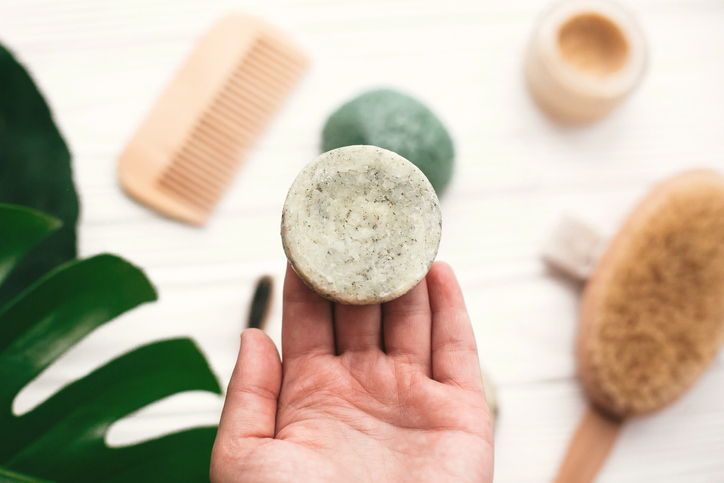By Mariève Inoue
The beauty industry is developing more sustainable practices and helping consumers make greener choices.
Preserving the planet for future generations should be a top priority for everyone, and that includes the cosmetics industry. More and more established brands are taking drastic measures to reduce their environmental footprint, while many smaller ones have made responsible values part of their DNA from their inception. The common goal is to reduce the harmful effects of the industry on the environment while also educating consumers to do their part. Here are six efforts that are making a difference.
Reducing Energy Consumption
According to Aurélie Weinling, Garnier’s sustainability and scientific director, pollution is generally evaluated according to 14 different factors, including influence on biodiversity and air quality. In Garnier’s case, the greatest impact on the environment is its carbon footprint. “Around 50 per cent of our carbon footprint is linked to the energy consumers use to rinse our products off heat the water,” Weinling explains. Garnier is hoping to raise people’s awareness of this fact in different ways. For example, the brand has been encouraging people to take shorter showers through its advertisements. “By cutting your time in the shower by one minute, you can save 10 litres of water,” she says.
Improving Packaging
Another especially harmful area of the beauty industry when it comes to the environment is packaging. “People shop with their eyes,” says Marilyne Bouchard, founder of the Canadian beauty brand BKIND. As a result, cosmetics are often overpackaged. This is why more and more brands are using more recycled and recyclable plastics for their products.
The hair-care brand Kérastase now offers reusable aluminum bottles and shampoo refills. An increasing number of brands have also begun to offer product refills, while others have eliminated plastic from their packaging altogether, as Attitude did for its solid Oceanly products.
Guerlain, another brand known for its environmental initiatives, has recently redesigned the bottles for its Aqua Allegoria fragrances to be refillable, recyclable, and made from 15 per cent recycled glass.
Prioritizing Bulk and Reusable Products
Skin-care and hair-care products sold in bulk are also becoming more common. “Almost all of BKIND’s products are available in bulk—and therefore sold without packaging—or can be refilled,” Bouchard says. Making use of this option allows you to save around 30 per cent of the cost of the regular, packaged product, she adds. Simply bring empty, clean containers to the store with you.
Two other brands, The Unscented Company and Attitude, offer “bulk at home” options for certain products, such as hand soap. You just order a refill when the time comes. It’s a great way to reuse the bottles without having to bring them back to the store for a fill-up.
Single-use products such as makeup wipes and sheet masks are particularly problematic. Weinling says that Garnier will be ending its production of makeup wipes. “We know there are alternative solutions, such as micellar water, that don’t require being rinsed with water,” she says.
Creating Greener Formulas
Compostable products are still rare in the cosmetics industry, but they are another option being explored. “We created a peel-off mask made from seaweed, which can be placed in the compost bin once you’re done using it,” Bouchard says.
Giving Back to the Planet
Many brands commit to giving a percentage of their profits to organizations whose mission is to protect the environment by, for example, planting trees. This is the case for Caudalie, among others, which is a member of the 1% for the Planet initiative and has been partnering with reforestation programs for more than a decade.
Avoiding Waste at All Costs
Sometimes, brands has to get creative to make the planet a priority. BKIND has experience with this. “A mistake led to us receiving 40,000 nail polishes that had the wrong cap,” Bouchard says. “Instead of throwing them out and starting over, we decided to be transparent with our community and sell the imperfect products at a discount. In the end, we were able to turn a misfortune into a comical situation.”
Solid Choices
Solid products such as shampoo and massage bars or bath-salt cubes can be sold without packaging, reducing the use of plastic. The British retailer Lush was one of the pioneers of this approach. Another interesting option is a more recent innovation: powder cosmetics that are meant to be mixed with a specific amount of water before use. Like solid products, they are more concentrated, lighter, and therefore more eco-friendly, as transporting them requires less energy.






